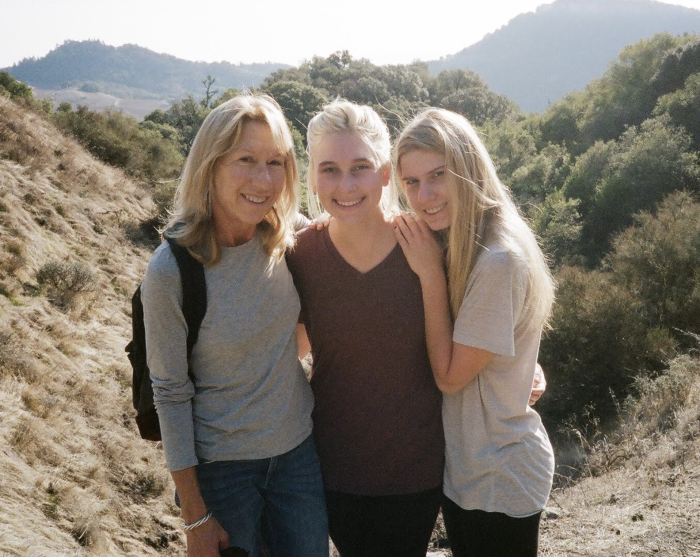{*Did you know you can write on Elephant? Here’s how—big changes: How to Write & Make Money or at least Be of Benefit on Elephant. ~ Waylon}
~
One of the most awkward moments in my life is at parties when some form of this question eventually comes up:
“Where do your parents live?”
My mom is dead. She’s been dead for six years in November and, gee, I wish I did know where she was living, existing, being in the universe. But as long as I am in my human body, I won’t know.
Inevitably, the party-goer who asked about my parents quickly attempts to compose themselves, saying: “I’m so sorry.” I smile and say, “It’s okay. It happened a long time ago…I’m fine.” And then I often change the subject, a symbolic offering of a life raft to the newly overwhelmed stranger.
And if I’m feeling extra spicy and disinterested in taking on the unasked-for caretaking of someone else’s feelings, I make a dead mom joke.
In a HuffPost article about the impact of humor on grief, Jesse Moss, who runs social media for a national nonprofit offering summer camps and year-round initiatives for grieving kids says, “Whenever I make a grief joke, like in person with people who haven’t experienced it, they’re mortified…My grief friends who understand it are like, ‘Yes.’”
Laughing and humor are one part of my grief that I’ve rejected for a long time. But when I stand in a room where everyone talks about texting their mom every day, it feels healing to lean over to my little sister and be like, “That was us…until mom died…” sharing in the darkly relatable moment.
If you remove the sadness, death is like a soap opera or a poorly written Shakespeare play. It has family feuding, money issues, romantic triangles, lawyers, funerals, desserts on desserts, and more flowers than you know what to do with. It is so absurd that it becomes a comedy of errors written by the universe, starring us in roles we never asked for.
While laughing in the face of your worst day is not everyone’s cup of tea, using humor to face adversity is also bespoke—the passage of time and context all matter. There is such a thing as “too soon,” and some topics in your life may be off-limits to joke about now, tomorrow, and forever. It also may never be too soon, and it is common to laugh at a funeral, literally in the face of death.
Humor is based on a shared experience or truth. Joking is an invitation to a group, with the invite being:
“I will show my vulnerability by making light of my suffering with the hope someone will relate to it and laugh at my joke, letting me know something in them sees me.”
It is a way of owning grief, saying “Hey, this is mine to carry and experience.”
Shitty, crappy things happen in life, and it feels like the whole world should stop to mourn alongside us—but it doesn’t. Good things still happen too, and being able to hold both truths, your never-ending loss, and the ability to keep on living, making positive memories and experiences without that person, and sometimes laughing in the face of the absurdity makes the burden 1 percent lighter.
Your parent may not be dead; maybe it’s your sibling, friend, grandparents, or child. Perhaps you have living parents who are not in your life, which is also a form of profound loss.
But if you take one nugget from my words, I hope you permit yourself to laugh more at the absurdity of your grief and find more people to share in your version of dead mom jokes.
~
{Please consider Boosting our authors’ articles in their first week to help them win Elephant’s Ecosystem so they can get paid and write more.}
~









Read 1 comment and reply